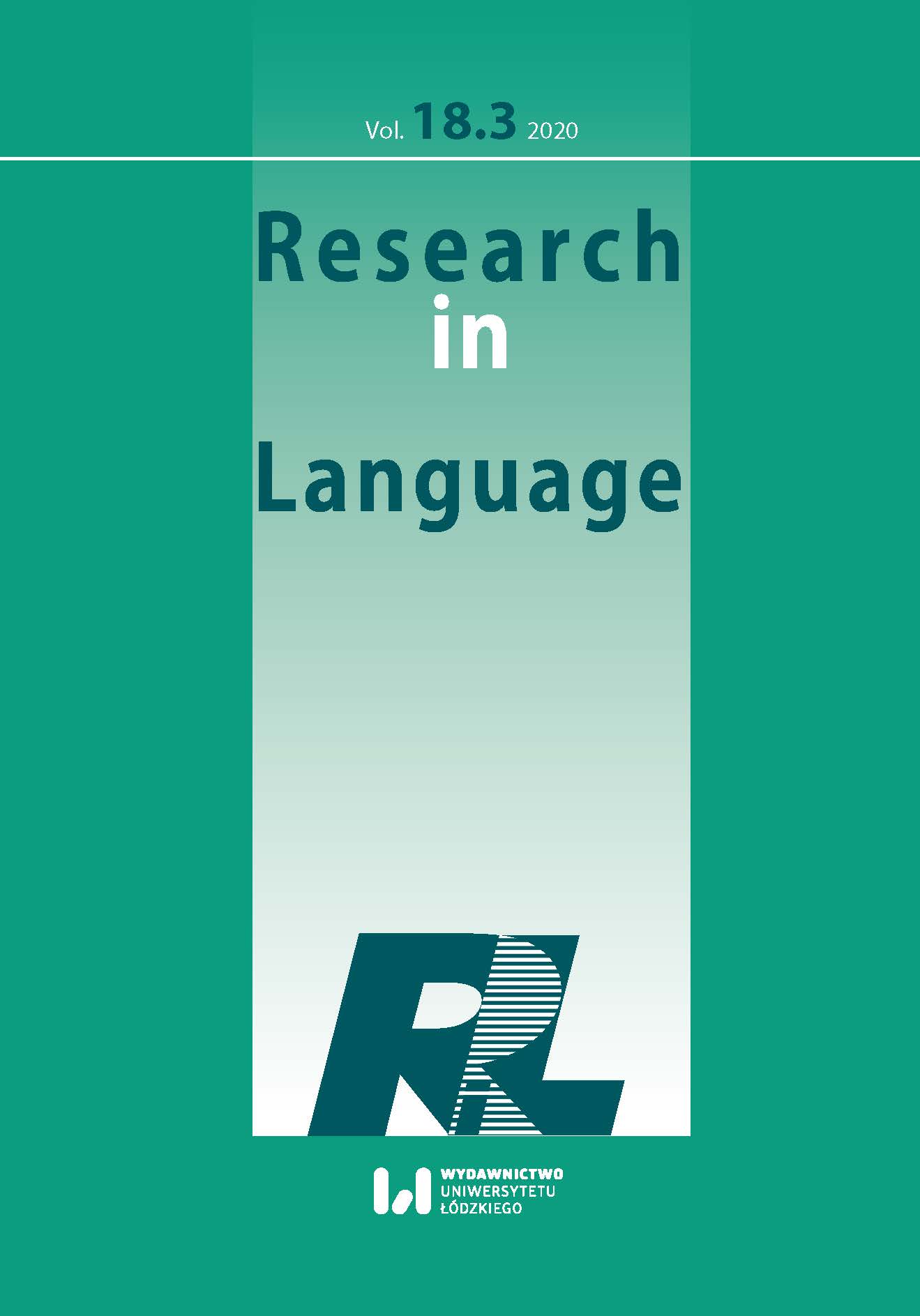On the Normative Paradigm of Sworn Translation in the Realm of Law
DOI:
https://doi.org/10.18778/1731-7533.18.3.04Keywords:
legal interpretation, sworn translator, legal language, literal translationAbstract
In the 1920s the Polish legislature adopted a whole range of normative acts focused on the protection of the Polish language and on sworn translators practicing in official contexts. In accordance with statutory law, since 2004 sworn translators have been considered a profession commanding public trust. Among the many professional duties associated with sworn translators' performance, the regulations emphasize the duty to translate both spoken discourse and written texts with precision and faithfulness, and make sworn translators liable to disciplinary sanctions for poor quality work. The principles and rules for practicing the profession of sworn translator are enumerated in the Professional Sworn Translator’s Code of 2018.
References
Bielska-Brodziak Agnieszka. 2006. “Zarzut "błędnej wykładni” [Allegation of “mistaken interpretation”], Ruch Prawniczy, Ekonomiczny i Socjologiczny, Vol. 1, pp. 69-79, repozytorium.amu.edu.pl [accessed 05.08.2019].
Google Scholar
Brożek Bartosz. 2006. “Derywacyjna koncepcja wykładni z perspektywy logicznej” [The derivative concept of juristic interpretation in a logical perspective], Ruch Prawniczy, Ekonomiczny i Socjologiczny, Vol. 1, pp. 81 - 92, repozytorium.amu.edu.pl, dostęp 04.08.2019;
Google Scholar
Brzeziński Bogumił. 2017. Wykładnia prawa podatkowego, [Interpretation of tax law] Część I Wykładnia językowa w prawie podatkowym, [slides, no date], law.uj.edu.pl; [accessed 17.08.2019].
Google Scholar
Czepita Stanisław. 2017. “O pojęciu czynności konwencjonalnej i jej odmianach” [On the concept of a conventional act and its types], Ruch Prawniczy, Ekonomiczny i Socjologiczny, Vol. 1, pp. 85 – 102. https://doi.org/10.14746/rpeis.2017.79.1.7
Google Scholar
DOI: https://doi.org/10.14746/rpeis.2017.79.1.7
Dworkin Ronald. 1986. Law's Empire. London: Fontana Press.
Google Scholar
Język, Komunikacja, Informacja [Language, Communication, Information], ed. by P. Nowak, P. Nowakowski, 3/2008, pp. 149 -161, repozytorium.amu.edu.pl [accessed 21.06.2019].
Google Scholar
Komsta Joanna. 2017. “Marriage - related legal concepts in English translations of the Polish Family and Guardianship Code - translation challenges”, Lingua Legis, No. 25, pp. 135 – 157; lingualegis.ils.uw.edu.pl [accessed 24.06.2019].
Google Scholar
Król Małgorzata Z. 2018. “O tłumaczach przysięgłych oraz tłumaczeniach przysięgłych w dziedzinie prawa” [On sworn translators and sworn translation in the legal domain], Rejent, No. 10, pp. 102 – 118.
Google Scholar
Kubacki Artur Dariusz. 2008. “Odpowiedzialność zawodowa tłumaczy przysięgłych” [Professional responsibility of sworn translators], In: Język, Komunikacja, Informacja [Language, Communication, Information], ed. by P. Nowak, P. Nowakowski, pp. 149–161.
Google Scholar
Lang Wiesław, Jerzy Wróblewski & Sylwester Zawadzki. 1986. Teoria państwa i prawa [The theory of state and law], 3rd edition. Warsaw: PWN.
Google Scholar
Morawski Lech. 2014. Zasady wykładni prawa [The Principles of Legal Interpretation], 3rd edition.. TNOiK.
Google Scholar
Nida Eugene. 1964. Toward a Science of Translating with Special Reference to Principles and Procedures Involved in Bible Translating. Leiden: E. J. Brill.
Google Scholar
DOI: https://doi.org/10.1163/9789004495746
Nida Eugene & Charles R. Taber.1982. The Theory and Practice of Translation. Leiden: E. J. Brill.
Google Scholar
Opałek Kazimierz. & Jerzy Wróblewski. 1969. Zagadnienia teorii prawa [Issues in the Theory of Law]. Warsaw: PWN.
Google Scholar
Parsons Talcott. 1962. “The Law and Social Control” In: Law and Sociology. Exploratory Essays, ed. by W. M. Evan, pp. 56 – 73. New York: The Free Press of Glencoe, Inc.
Google Scholar
Popiołek Michał. 2017. “ISO 20771, czyli pierwsza międzynarodowa norma dotycząca tłumaczeń prawnych” [ISO 20771—the first international legal translation standard], Lingua Legis, No. 25, pp. 159 - 163, lingualegis.ils.uw.edu.pl [accessed 24.06.2019]
Google Scholar
Skuczyński Paweł. 2010. Status etyki prawniczej [The status of legal ethics]. Warszawa: LexisNexis.
Google Scholar
Wróblewski Jerzy. 1961. “Interpretatio secundum, praeter et contra legem”, Państwo i Prawo, 4 – 5, pp. 615 – 627.
Google Scholar
Wróblewski Jerzy. 1972. Sądowe stosowanie prawa [Judicial application of law]. Warsaw: PWN.
Google Scholar
Wróblewski Jerzy. 1959. Zagadnienia wykładni prawa ludowego [Issues in the interpretation of people’s law]. Warszawa: Wydawnictwo Prawnicze.
Google Scholar
Zieliński Maciej. 2002. Wykładnia prawa. Zasady. Reguły. Wskazówki [Legal Interpretation: Principles, Rules, Guidelines]. Warsaw: Wydawnictwo Prawnicze LexisNexis.
Google Scholar
Zieliński Maciej. 2005.“Podstawowe zasady współczesnej wykładni prawa” [Fundamental principles of contemporary legal interpretation]. In: Teoria i praktyka wykładni prawa: materiały konferencji naukowej Wydziału Prawa i Administracji Uniwersytetu Warszawskiego odbytej w dniu 27 lutego 2004. [Theory and practice of legal interpretation: proceedings of a scientific conference of the Faculty of Law and Administration of Warsaw University held on 27 February 2004], ed. by P. Winczorek, pp. 117 – 125Warszawa: LIBER.
Google Scholar
Downloads
Published
How to Cite
Issue
Section
License

This work is licensed under a Creative Commons Attribution-NonCommercial-NoDerivatives 4.0 International License.










